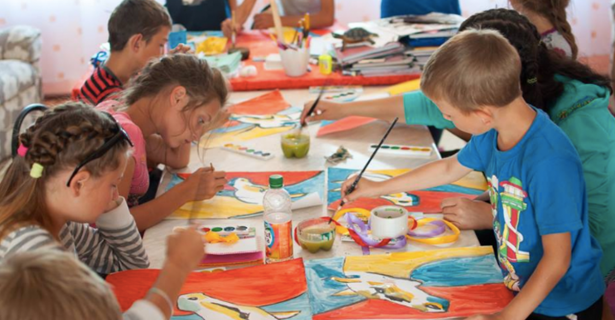This summer, I had a chance to work with a newly established social enterprise whose main goal is to create job opportunities for marginalized citizens – the disabled, single mothers and orphans – in Astana, Kazakhstan.
This start up project was founded by young professionals who, while being educated in western universities, were impressed by how well social issues were addressed and managed in developed countries. Upon graduation, they returned to Kazakhstan to contribute to the country’s development. They faced many challenges and obstacles working in a post-Soviet legacy country, where social entrepreneurship is a new trend.
One of my tasks was to connect with international donors such as UNDP, World Bank, the European Bank for Reconstruction and Development, the Asian Development Bank, various foreign embassies, and local NGOs to see how they could support the development of this social enterprise in Central Asia.
As an intern, I also had the chance to visit orphanages and spend time with children.
It was the best experience.
In the Kazakh orphanage system, children live and study together. They are relatively isolated from the real world and, as a result, they are excited when volunteers arrive.
I was responsible for developing a questionnaire/survey to help students identify their career aspirations. Based on the results, we discussed ways to become an expert in their chosen field. We even brought in professionals and took students on site visits.
The experience was also rewarding for us because, after spending so much time with the students, we became attached to them and learned much about them. I was most surprised to learn that many of the orphans have living parents who lost custody. They dream of graduating from the orphanage and meeting those parents. When students were asked what they would buy with their first paycheck, they said they would buy cell phones for their parents. These children loved and accepted their parents for who they were and were not angry about having been separated.
Personally, this experience made me realize that sometimes we get angry with our relatives and do not appreciate that we should take our families as they are.
I vividly recall one experience that left a profound impact on me. I visited a day center for children from underprivileged families. A four-year old boy was crying, and I asked him what was bothering him. His reply was, “I want to go home, I miss my mom.” By that time, he was sitting on my lap. I hugged him and said that he would be home soon since his mom would pick him up in a few hours. He looked at me so mature, with a strong gaze, and said, “My mom is in a prison, so I won’t see her.” Tears dropped from my eyes and I was shocked for a few seconds, thinking about what to say next. I was not ready for such a reply. This little boy looked so insecure and already knew what prison was at such a young age.
Sometimes we take many things for granted. We are blessed to have supportive friends and grow up in a safe environment. Therefore, it is our duty to provide and advocate for marginalized citizens’ rights. Any one of us could have been in their shoes. Our society should not be isolated, but rather we should tackle such issues by working jointly on making the world a better place.

